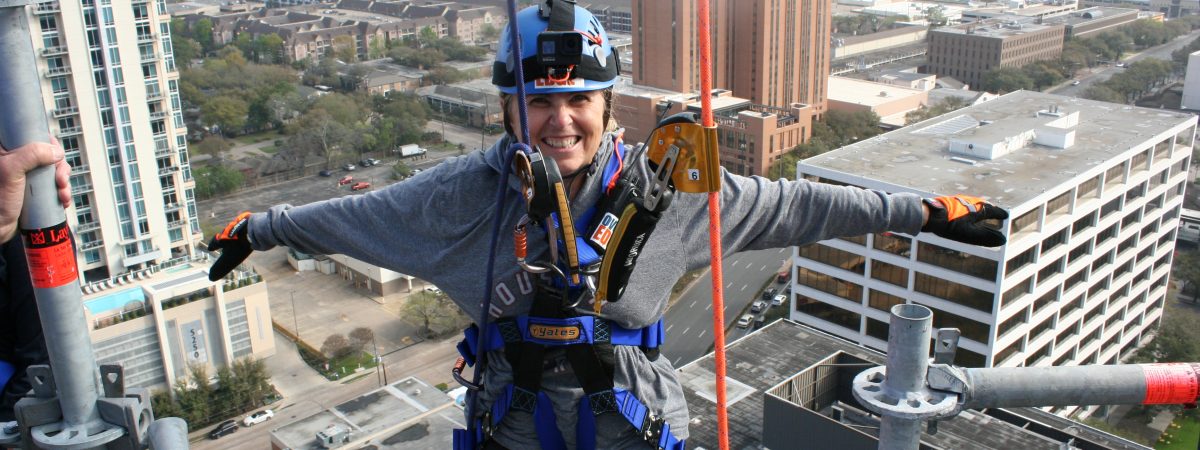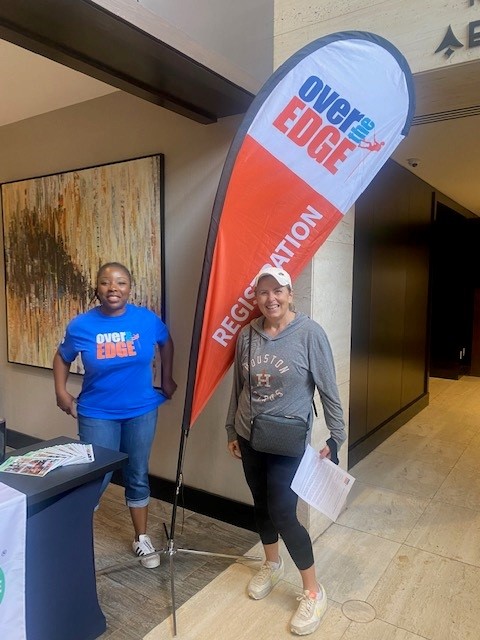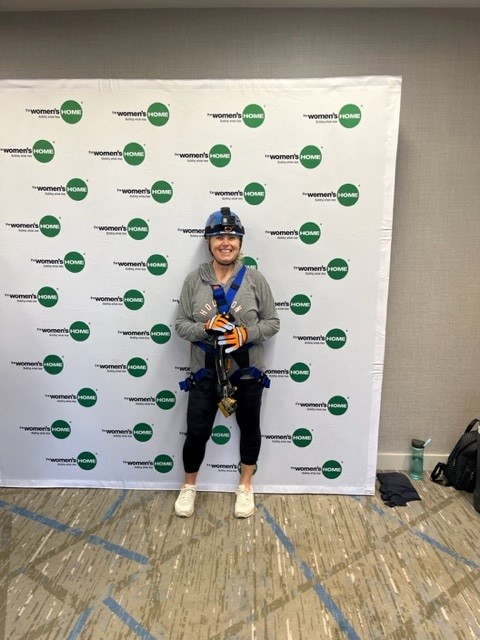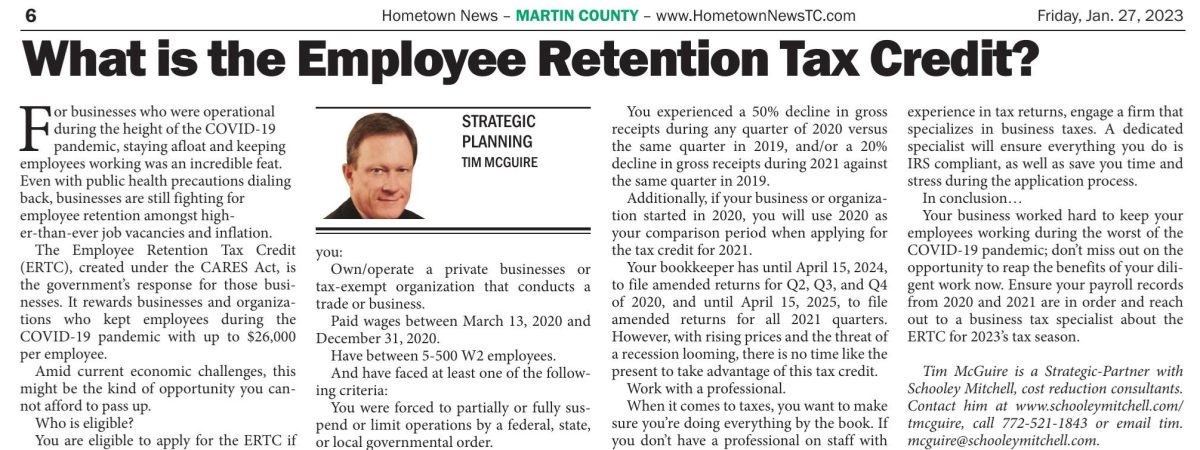How Schooley Mitchell can help nonprofits.
In this video, Schooley Mitchell’s David Dow explains how he can help nonprofits, and shares a great client story!

In this video, Schooley Mitchell’s David Dow explains how he can help nonprofits, and shares a great client story!

 phi·lan·thro·py – fə-ˈlan(t)-thrə-pē
phi·lan·thro·py – fə-ˈlan(t)-thrə-pē
goodwill to fellow members of the human race; active effort to promote human welfare; an act or gift done or made for humanitarian purposes.
If you look up the definitions of ‘philanthropy’, nowhere will you find mention of personal wealth or the need to be rich. Yet today, it’s often thought that philanthropy is the domain of those with uber personal wealth and foundations with very deep pockets. This is not to say that the world’s wealthiest individuals and foundations don’t do enormous good with their money in helping to eradicate disease, foster innovation, and to support the arts, just to name a few things. The point is that it’s not an exclusive club, or at least I don’t believe it has to be.
I caught some flack a couple of years back when my artist statement for an exhibit I was having included that I’m an “artist, entrepreneur, and philanthropist”. The intention was not to be self-aggrandizing, but to point out that artists come in lots of shapes and sizes, with many interests, and that my partner, Jim, and I are committed to doing all the good we can with the resources we have created together. The common comeback was, “isn’t that what you call the Gates, or Ford Foundation, or Carnegie’s or…” – you can fill in the blanks. I was a bit taken back and stopped using the term for a while, but it bothered me that my deep passion for giving and helping didn’t measure up to the word, simply because I have less.
The advent of micro lending has taught us that all people, not just huge banks and international organizations, can make a difference in helping to lift people out of poverty – not a handout but a hand up. Nonprofits like Heifer International and Kiva provide an accessible platform for anyone to assist entrepreneurs all over the world to start businesses which can sustain themselves and provide food, shelter, education, and living wages for their families. In some cases, like Heifer, it is a requirement that beneficiaries of a gifted animal pay it forward to others creating multiple and ongoing lifecycles of opportunity; or with Kiva you can continue to re-donate your initial $25 loan over and over again. These organizations take a modest original contribution and turn it into a powerful cyclical gift.
This topic came to mind again recently, when I was speaking with an educator and collaborator on an important nonprofit project. She is the Dean of Liberal Arts and Social Sciences for a local college, as well as a first-generation college graduate who worked hard to put herself through an undergraduate program, Master’s, and Ph.D. She went on to teach at liberal arts colleges on the east coast for decades before coming to lead the liberal arts and social science programs at our very innovative, inclusive, and transformational community college.
While speaking with this collaborator, she shared with me that she has never been wealthy, has had to work hard for the life that she has created for herself and son, but that she gives monthly, every month, to a children’s research hospital. Her donation is not large but it’s consistent. She embodies what I believe to be philanthropy and being a philanthropist at its purist.
I will continue to be a philanthropist, and label myself as such, through giving, volunteering, and advocating for causes that I believe are important and worthy. I’d like to call on all of you to join the club and share three simple things that we/you can do:
Many of us want to do more in our communities, but feel a financial obstacle in our way. While it would be wonderful to have the kind of income that allows us to make donations with lots of zeros to the nonprofits we believe in, large financial donations are not the only way to practice philanthropy.
During times of economic uncertainty, clients depend on strategic business advisors more than ever. Chances are, you’re doing all the right things; you understand your client’s business, you have optimized your suite of products and services, and you have provided excellent strategic advice across your domain of expertise. So, what else can you do to provide even more value and build stickier relationships?
The concept of the “network effect” originated in the tech space, and refers to the phenomenon where the value of a product or service increases as more people use it. Take social media, for example. Platforms like Instagram or TikTok became more valuable as more users joined and contributed content, despite more niche beginnings.
The network effect also creates economies of scale for companies with large user bases, allowing them to leverage their size to reduce costs and increase profits.
We all know it’s impossible to be all things to all people. We learned that in our Marketing 101 class! That’s why growing a diverse and highly curated personal and business network can be so valuable to your success.
The value of your network increases as you connect with more people. During a job search, the more people you know, the more likely you are to be connected to someone hiring or be provided with a good reference. As a business owner, a diverse network is more likely to help you get new customers or referrals or connect you with the right subject matter expert.
While we all serve as experts in our unique business domain, have you explored tapping into a broader set of experts that can complement your expertise and provide even more value to your clients? New connections can instantly unlock resources, insights, and revenue opportunities for your clients with just a simple introduction. I know we all tend to network with the “usual suspects” like accountants, attorneys, and financial advisors. But have you explored some more “under the radar” experts like:
As a Schooley Mitchell franchise owner, I work across almost every industry. Our cost categories apply to virtually every business. As a result, I am constantly engaged in conversations across a broad set of business topics, trends, and challenges. I am constantly looking to my network of experts and clients to help me address their diverse set of business needs.
How about we set up a call to discuss how we could collaborate and collectively harness the power of our unique personal and business networks?

Schooley Mitchell’s Lori McDowell participated in a fundraiser for The Women’s Home called Over the Edge, where she raised over $2400 and was able to rappel off the Galleria Doubletree Hotel.





Recently, Schooley Mitchell’s Lori McDowell was featured in Atascocita/Humble Catholic Magazine, in an article by Shannon M Carr:
 Schooley Mitchell provides cost reduction consulting to businesses ad nonprofits. Schooley Mitchell does not sell any form of product. The magic behind Schooley Mitchell is how they identify an organization’s errors and overcharges with their current vendor invoices, negotiate better contracts with existing and new vendors, manage ongoing vendor relationships, and ensure they are always getting the best deal (risk-free). They have been helping businesses become more profitable, and they have helped nonprofits have more funds for programs for over 20 years.
Schooley Mitchell provides cost reduction consulting to businesses ad nonprofits. Schooley Mitchell does not sell any form of product. The magic behind Schooley Mitchell is how they identify an organization’s errors and overcharges with their current vendor invoices, negotiate better contracts with existing and new vendors, manage ongoing vendor relationships, and ensure they are always getting the best deal (risk-free). They have been helping businesses become more profitable, and they have helped nonprofits have more funds for programs for over 20 years.
“The basic philosophy is we can help organizations save money with no risk – if you don’t save money, we don’t get paid!” Lori said.
The philosophy behind Schooley Mitchell is helping organizations that are resource-limited by having Schooley Mitchell’s tea, do the work for them, and in return, both companies share in the savings. Companies become more profitable, and nonprofits have more money available for programs.
“What I enjoy most about my work is when I can help someone else succeed, when I work with a business and save them money, or work with a nonprofit and they see how much less they can pay for services and how they can use this money to help the community. It brings me great joy,” said Lori.
It’s a great time to take Lori up on her no-risk offer if you own or manage a business or work with a nonprofit in the area.
Schooley Mitchell is offering any customer that signs up for services before May 31, 2023, to donate 10% of the Schooley Mitchell profit to a nonprofit of their choice, and this donation will continue quarterly for the length of the service agreement, which is typically three years. Plus, any nonprofit that signs up before May 31 will get a 15% donation back to the nonprofit.
Lori is a kind and giving heart who has lived in the Kingwood and Atascocita area since December of 1999 with her husband, Frank, and son, Hunter. “I am intentional about making my workday inspirational. I start each day with a prayer/meditation/moment of mindfulness, ad when I get anxious or frustrated with the obstacles that risk up, I focus on the food I am doing for the organizations I am working with ad all the amazing people I have met so far.”
To learn more about how Schooley Mitchell can help your organization of business, reach out to Lori McDowell at 281-740-2865 or visit schooleymitchell.com/lmcdowell
For PDF view, please click here.

 It’s conference season! Many businesses have seen a drastic reduction in corporate travel in the past few years due to COVID-19, but 2023 is looking like the year that travel plans can resume as usual.
It’s conference season! Many businesses have seen a drastic reduction in corporate travel in the past few years due to COVID-19, but 2023 is looking like the year that travel plans can resume as usual.
If your business has grown used to not paying for employee travel in the past few years, you may find yourself squeezing the budget trying to make arrangements. In this article, we’re taking a look at some recommendations to offset expenses and make room in your budget for the cost of business travel.
Travel costs are more expensive than before the pandemic.
When it comes to travel in 2023, there’s good news and bad news. The good news? Prices are finally starting to decrease. The bad news? That’s after hitting record highs.
It’s not surprising 2022 saw record travel prices – the cost of doing anything increased right around the same time that many felt comfortable travelling again. So don’t be surprised if the cost of flying, housing, and feeding your travelling employees is more expensive than pre-pandemic conference seasons.
However, especially if you haven’t booked yet, there may be opportunities to book better deals than if you travelled to any conferences in the previous year.
Where do you find the money to pay for business travel?
If the budget is tight this year, and you’re worried about the cost of travel, there are ways you can streamline and optimize your daily operations, while freeing up extra funds in your budget that can go to additional expenses such as conference travel.
My business, Schooley Mitchell, is North America’s largest independent cost reduction firm. We help businesses free up these kinds of funds every day. Here are some of the areas we find that businesses regularly overspend.
Incorrect card processing rate structures.
Your business could be losing significant revenue to incorrect card processing rate structures.
Processors usually offer seemingly standard contracts, but many contain provisions that allow them to increase your rates. This often comes with the caveat they must notify you first — but those notifications could appear in small print on one of your statements. Be sure to read your statements for notification of rate increases and periodically check your rate to see if it has mysteriously increased. Often, all it takes for them to waive the rate increase is a phone call to object.
Unorganized software licenses.
If you pay for anything like Microsoft Office or Adobe products for your business, unorganized licenses could be costing you.
Forbes calls this the “quintessential Goldilocks problem… Purchase too many licenses and unprovisioned or inactive licenses will never get used, resulting in wasted spend. Purchase too few, and your employees could deal with the constraints of having to share, swap or reassign licenses frequently.”
In either scenario you’re wasting money; either on idle licenses or lost productivity.
Unnecessary analog phone lines.
Nowadays, a lot can be done with a stable internet connection – making your analog phone lines not only redundant, but overpriced. Solutions such as Voice over Internet Protocol (VoIP) or Unified Communications as a Service (UCaaS) give you a lot more bang for your buck, without long distance calling fees.
Billing errors.
As cost reduction specialists, we see way too many billing errors on our clients invoices. From incorrect rates and cancelled services to being charged for another customer’s services, billing errors are expensive and tiresome to resolve. However, vigilance is important. Especially for larger accounts – such as telecom services with hundreds of phone lines attached – it’s not uncommon for us to find a billing error worth several thousand dollars.
In conclusion…
While readjusting to regular conference travel costs could be a shock to your budget, it’s doable. In fact, there are lots of easy ways to recover money you might be overspending, in order to fund that travel.
My business is helping businesses just like yours save money on their operational expenses across thirteen common cost categories. I’d love to help your free up space and time in your operations to make this year’s conference travel smooth sailing.

Schooley Mitchell’s Lee Balaklaw was recent featured in an episode of Feed Your L.I.O.N, entitled “Physician to Businessman.” To hear Lee’s story and check out this awesome podcast, you can listen, here.

Recently, Schooley Mitchell’s Tim McGuire submitted an article to be featured in the Martin County edition of Florida’s Hometown News. You can read the edition, here.

 Here’s a universal truth – difficult economic times often lead to difficult choices. The choices can be even harder if you’re a business owner or manager. With your company and your staff relying on your leadership, the stress relating to financial decisions can be overwhelming.
Here’s a universal truth – difficult economic times often lead to difficult choices. The choices can be even harder if you’re a business owner or manager. With your company and your staff relying on your leadership, the stress relating to financial decisions can be overwhelming.
Auto dealerships may be among the many businesses to feel the challenges posed by inflation, global supply chain issues, and consumer hesitancy. With demand running low, netting less revenue for dealerships, you may feel the pressure to reduce service offerings or even cut staff.
Rather than making a decision that could potentially hurt your business in the long run, consider another, more strategic method of reducing your costs.
The answer is simpler than you think. Instead of cutting staff or services, focus on your indirect operational expenses. Indirect expenses are costs not associated with your cost of goods sold or labor; this includes cost categories like telephone and internet, utilities, waste disposal, facility supplies, uniforms, and more.
Indirect cost procurement is the process of finding sustainable reductions to these costs; meaning they increase your bottom line without impacting your business’ operations.
Altogether, indirect costs can represent around 15% of your dealership’s annual budget. In my experience, many business owners either don’t have the time to assess these expenses or don’t have the knowledge or tools to look for ways to reduce them.
My business, Schooley Mitchell, has been working with businesses and organizations across North America for over twenty years, reducing their operational expenses across thirteen different cost categories. We’ve found that many businesses don’t even know they’re overpaying vendors. Our indirect cost procurement process helps reduce these expenses by an average of 28% – which can amount to some significant savings.
For auto dealerships, one of the expenses we find needs optimizing quite frequently is their telecom and waste disposal spend. Recently, we helped deliver roughly 39% in savings for one business’ waste fees, and for another, achieved annual savings of $10,000 in waste disposal and telecom fees.
So you want to begin cutting indirect costs, but where do you start? Here is my five-step recommendation for indirect cost procurement that any dealership can follow:
Admittedly, these five steps can be time consuming and feel a bit daunting. However, 15% or more of your dealership’s annual budget is no small thing, and with an ever-changing economic environment, that piece of the pie could go from important to critical in the blink of an eye.
Your time is valuable, and so is your budget. If you don’t want to choose between cutting costs and doing the work you love, I’d be happy to arrange a time to talk about how Schooley Mitchell can do a risk-free analysis of your indirect costs. The best part? Our fees are self-funded from a portion of the savings we find – meaning, if we don’t find savings, our work comes at no cost.
Please a time to talk at: https://www.schooleymitchell.com/asmith/#Contact

Michael recently helped support the Annual Dr. Martin Luther King Jr. Basketball Tournament held at The Ark of St. Sabina Church where Rev. Michael Pfleger is the Pastor. This event offers a safe & fun environment for inner-city youth to compete and promote sportsmanship and health, while honoring the legacy of MLK.



